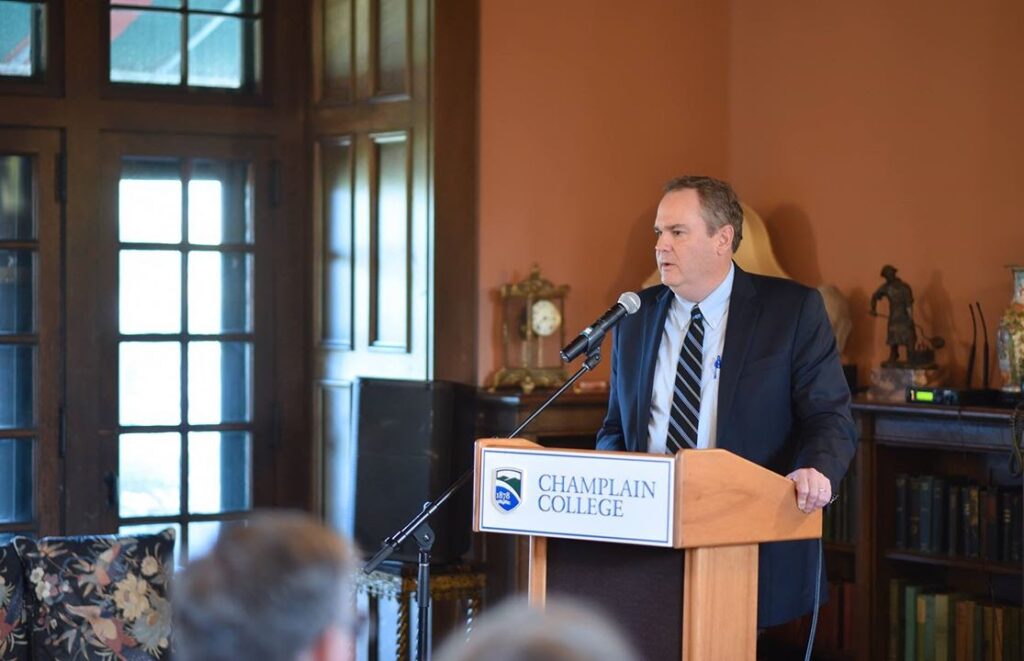This Shout Out goes to John Pelletier, the Director of Champlain’s Center for Financial Literacy (Center).
Pelletier helped create the Center out of concern about the lack of personal finance training for students K–12 and in college, as well as adults in the workplace, including educators.
“Too many of our children aren’t learning important personal finance skills at home or school,” says Pelletier. “That puts all of our economic futures at risk: individuals, families, and the country.”
“Parents are nearly as uncomfortable talking to their kids about money as they are about sex. That’s not surprising—in a national survey of adults, only one in five had ever taken any personal finance training in grades K–12, college, or the workplace.”
“Naturally, we look to our teachers to help students become financially literate,” he adds. However, one survey of K–12 educators indicated that fewer than 20% of teachers reported feeling “very competent” to teach any of six basic personal finance topics.
In the Center’s 2017 National Report Card on State Efforts to Improve Financial Literacy in High Schools, Vermont was awarded a “D” for its efforts to teach financial literacy to high school students. Within the following year, the State Board of Education replaced its outdated personal finance education with Jump$tart Coalition’s more comprehensive K–12 national standards.
The Center announced a quarter-million dollar grant, awarded on October 10, 2018, in order to help Vermont educators improve the financial literacy of approximately 80,000 public education students. This grant is composed of donations from the Northfield Savings Bank Foundation, the National Life Group Foundation, and Next Gen Personal Finance. The grant will go towards providing access, resources, and training to all Vermont K–12 public school teachers.


“We know that financial literacy leads to better personal finance behavior,” says Pelletier. He notes that financial literacy is linked to positive outcomes like wealth accumulation, stock market participation, and effective retirement planning, as well as avoidance of high-cost alternative financial services like payday lending and auto title loans. Those who are financially literate are also more likely to have lower debt and credit delinquency levels.
“As a society, we need more training programs that increase the number of financially literate citizens who are able to make better and wiser financial decisions in their own lives. Such programs are not just good for the individual but also helpful to society.”
He goes on to say, “Personal finance education should start early, both at home and in school. Ideally, personal finance concepts should be taught in elementary, middle and high school, and should continue into college. In mathematics, you start with counting, move on to addition and subtraction, and then move on to division and multiplication. You need to learn letters before you can read. Personal finance education should be a cumulative process, with age-appropriate topics taught each school year. The reality is that too many states and school districts do not provide any substantive personal finance education until high school, if at all.”
Find out more about Champlain College’s InSight career readiness and personal finance program through the Career Collaborative.